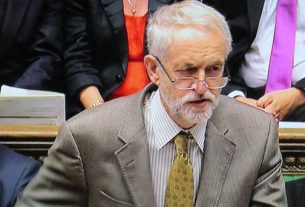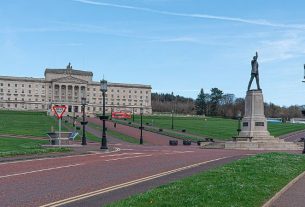It’s 165 years since the Great Stink and this summer has no shortage of personalities and events to support Karl Marx’s observation that “history repeats itself, the first time as tragedy, the second as farce.”
It always reeked but 18th century London really stank. Its rank air wafted the pungent scent of human waste and industrial effluence off the city streets and river Thames.
So immense was the stench that summer in 1858 was branded the Great Stink. Hot weather through June and July made even more vile the acrid hum from the serpentine river. That the Thames runs straight past the Palace of Westminster helped hasten MPs and (more importantly in those days) Lords to find a solution – and provide the finances to pay for the sewers that fixed the problem.
Today (August 29), as London’s latest scheme to purify its air through expanding the ULEZ scheme, the UK government – which opposes it – chose to announce it is scrapping EU legislation that protects rivers from pollution.
Michael Gove, secretary of state for levelling-up stepped forward and explained this Brexit benefit has freed Britain from having to keep its rivers clean. Getting rid of this “defective” piece of EU red-tape will, Gove said, boost Britain’s depleted housing stock by 100,000 extra homes by 2030.
The details of the plan, in short, tears up EU-legacy regulations requiring developers to limit river pollution when building houses. Water companies don’t seem to mind releasing raw sewage into rivers (turns out it’s very profitable) so why shouldn’t the government be minded to let developers show the same level of care to the country’s waterways so they too can enrich their riches?
Britain needs houses. So what if the cost of these is even more polluted and shit filled rivers. They’re in a right state already, so what difference will a few more millions of floating turds, wet wipes, sanitary towels and worse make to Britain’s rivers make? Because that’s that’s the jist of the government’s message.
At least London mayor Sadiq Khan has been honest that clean air comes at a price. Specifically to drivers of older, more polluting vehicles who will have to pay £12.50 from today to enter the capital’s expanded ultra-low emissions zone (ULEZ). Khan is clearly willing to pay the political price for what, thanks to the Uxbridge byelection defeat for Labour, is perceived as an unpopular policy. Despite strong evidence to the contrary.
The Uxbridge byelection was already significant given it put a line under Boris Johnson’s political career (for now) but Tories have seized on the result as proof that the public’s not that concerned about the environment and have been increasingly attacking this front as part of their wider culture war.
ULEZ schemes aren’t restricted to London. Many of Britain’s cities have such zones with penalties for non-compliant vehicles because the government that now apparently opposes them previously compelled local authorities to introduce them.
In Clean Air, Clean Country Burro Banton begs Mr Pollutioner “to leave”. Thirteen years after Banton’s dancehall hit and Mr Pollutioner has not gone anywhere. If anything he is even more entrenched. He’s certainly richer and there’s no sign of him shifting anytime soon – especially not, for example, when new licences have been issued for oil and gas drilling in the north sea.
But one who has finally left after much begging is Nadine Dorries who formally quit as an MP at the end of last week – more than two months after emphatically stating she was “resigning with immediate effect”. The floater has been finally flushed from parliament, one might say – without the investigation into why she didn’t get her peerage but not without leaving a great stink behind her either.
The former culture secretary’s characteristically petulant exit saw Dorries fire an extraordinary parting shot at her erstwhile colleagues. In a blistering resignation letter to the prime minister, Dorries dismissed his “zombie government” and went all in on Sunak’s lack of policy, action or legislation.
“History will not judge you kindly,” Dorries told the snake who did for her beloved Boris, not least because of Sunak’s non-commitment to climate change and the environment. Dorries even cited Zac Goldsmith’s condemnation of the PM’s “apathy” towards the environment when he resigned from the snake’s government earlier this summer.
But Sunak may quite like the serpent comparison. The snake, after all, is revered by many cultures as the wisest of creatures. Lord Ganesha – the multi-limbed elephant-headed god – wears one round his waist to show his wisdom and he certainly wouldn’t have to pay ULEZ, not least because he travels about on the back of mouse.
Sunak said he has a golden Ganesha on his Downing Street desk. He says it serves as “a constant reminder to me about listening and reflecting on issues before acting.”
The PM said his faith “guides me in every aspect of my life” and when he recently celebrated India’s national independence day at Cambridge’s Ram Katha – a nine day recital of scripture – he told the crowd he was “not there as a prime minister but as a Hindu”.
In Hinduism, sacred rivers are personified as deities and cherished for the life they create and sustain.
The impact to rivers of Sunak’s government scrapping EU law to free developers to build houses will inevitably create another great political stink that may well turn out to be the biggest elephant in Rishi’s room.
In the end, Mad Nads prediction of history’s judgement might turn out to be right after all with the farce of multiple Conservative governments the tragedy, not just for rivers, but us all.




